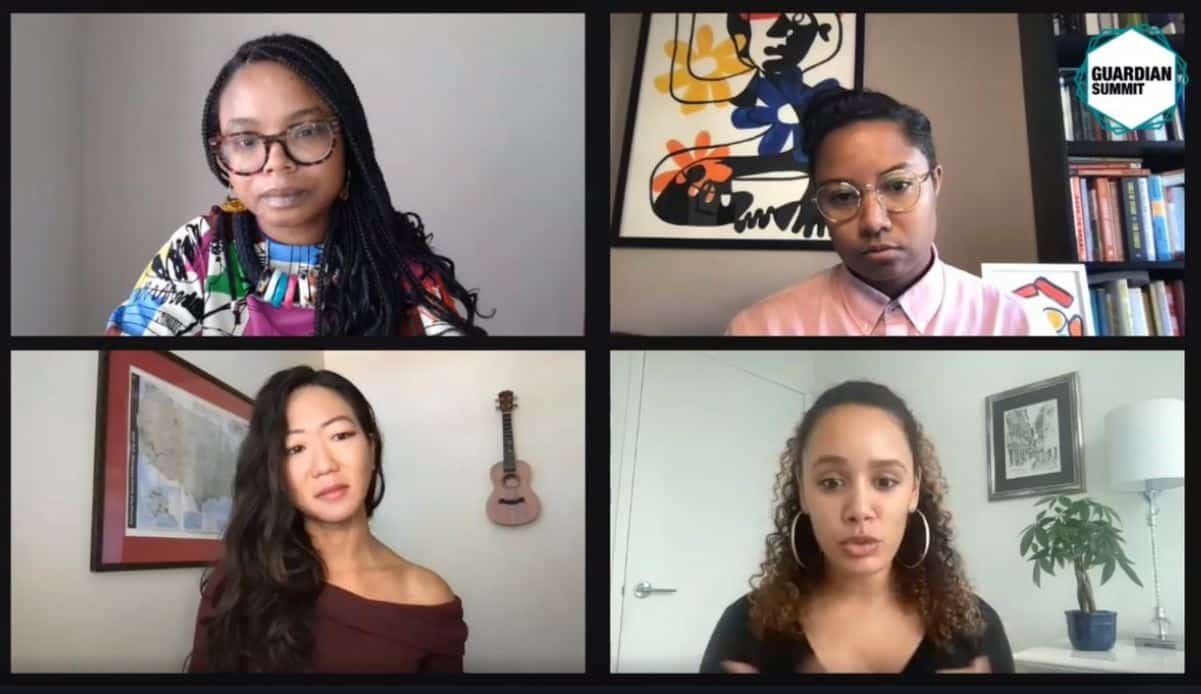BIPOC Entrepreneurs Work to Combat Inequities

Social entrepreneurship uses technology to bridge the gap between “cash-strapped” municipalities and local governments, said Gabriella Wong, CEO and founder of AccesSOS, Tuesday.
Wong’s comment came during the Camelback Venture’s Guardian Summit panel discussion where she was joined by two other socially-driven app founders and executives to discuss what entrepreneurs, particularly Black, Indigenous, and people of color – known as BIPOC – entrepreneurs can do to ensure technology is used for good, not just profit.
During a time when Facebook is under fire in the U.S. Congress for putting entertainment and profit over people’s wellbeing, using technology to leverage content that generates more clicks and views, the panel brought to light what these BIPOC entrepreneurs were doing to combat inequities rather than amplify them.
Wong is the daughter of two deaf immigrants. She knew the difficulties her parents faced due to their disability; the racial barriers that faced them. She found that 911 services were accessible only to those who could speak and hear in English. She initially sought to put resources into moving policy forward, but realized state and local governments lack the resources necessary to upgrade their services even if legislation were passed to do so. AccesSOS is an app that translates a text into a 911 phone call, in real-time, at scale and in multiple languages.
For the “37 million Americans who can’t hear or speak out loud for help…we make contacting emergency help more efficient and accurate and accessible to people with disabilities,” Wong said.
Ten years from now, she added, the municipalities would likely have caught up with the services AccesSOS enables as the current legacy systems only support voice to 911. By then, her app can move towards bridging access gaps elsewhere, even internationally.
Using technology for good means that you implement it to give everyone a “fair shot…[and] access to the services they need,” said Nicole Jarbo, co-founder of Boost. Her app is a financial platform helping “[Generation] Z side hustlers manage their business finances in one place” in order to make a predictable income for this gig-centric generation. And if Gen Z is already “overwhelmingly the most diverse population,” she said, “Gen Alpha will be even more diverse.”
Each one of the panelists, and most BIPOC tech entrepreneurs, are trying to sell an app that is a problem-first solution for an identified market failure, Wong said, “something that markets won’t touch.”
Civic empowerment is what 1000 MORE Founder D’Seante Parks sought to provide with her app, which is the first tracker for all current legislation moving through Congress and coming up for a vote. It’s accessible and legible to all, as it’s written at a third-grade level due to the average American literacy rate being below sixth grade, she said.
From the app itself, a user can call, email or tweet their elected officials, and are provided with a script if needed, with the ability to crowdfund advocacy efforts.
“Essentially, we are helping regular Americans break up the big lobby,” Parks said, “using technology as a conduit to the work we already do.”
And the three BIPOC entrepreneurs pointed out that it was important, if not imperative, for the social entrepreneurship population to reflect that of the world – a diverse one.
“Our lived experience actually matters,” Jarbo explained, as most BIPOC entrepreneurs have a “vested interest in solving the problem,” because it affects them or people they know and love. They also understand the problem in deeper ways because they have seen its impact on people and “how the problem actually functions.” And lastly, she added, inclusion and diversity lead to innovation.
























